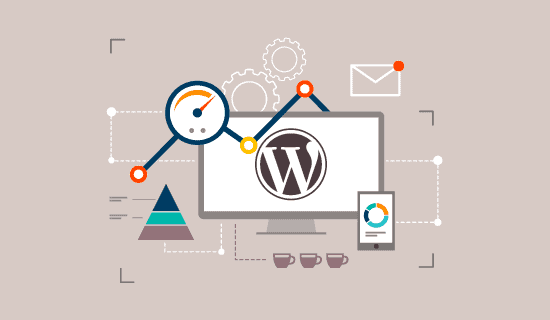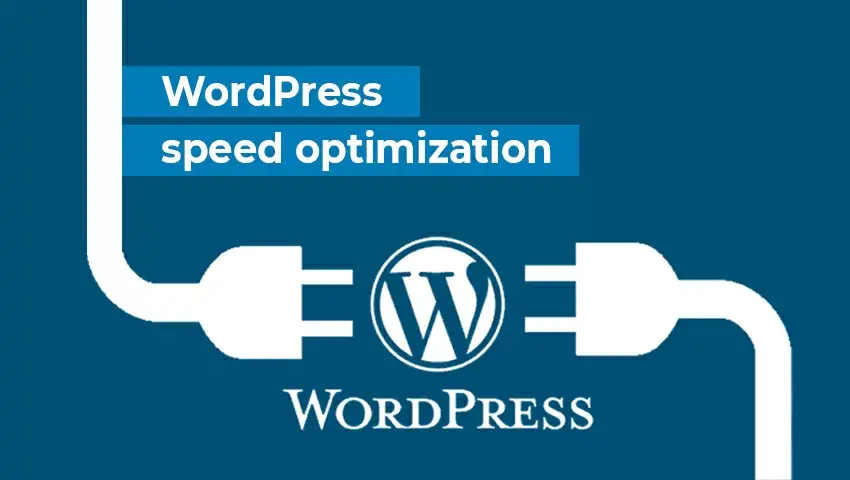Speed is crucial for a successful WordPress site. A fast website ensures a better user experience, boosts search engine rankings, and increases conversion rates.
In today’s digital landscape, where users expect quick loading times, optimizing your WordPress site’s performance is a necessity.
Luckily, you don’t need to be a coding expert to improve your site’s speed. Various WordPress speed optimization tools can significantly enhance performance with just a few clicks.
These tools target several areas, such as caching, image compression, and file reduction, to ensure your website runs as efficiently as possible.
This article explores the most effective WordPress Speed Optimization Tools.
We’ll also discuss why speed matters for your website and share some tips developers, including those involved in WordPress development in New York, Texas, and other parts of the U.S. commonly use to enhance site performance.
Why WordPress Speed Matters for Your Website
Fast loading times are essential for any website, especially those built on WordPress. Slow websites lead to higher bounce rates, where users abandon the site before it even finishes loading.
Studies show that if a page takes longer than three seconds to load, nearly half of the visitors will leave without interacting with it. This can directly impact conversion rates, engagement, and overall user satisfaction.
Speed is also a crucial factor in SEO (Search Engine Optimization). Google has clarified that page speed affects rankings, and websites that load faster tend to rank higher in search engine results.
A slow website can hurt your visibility in search engines, making it harder for potential customers to find you.
Moreover, Google’s introduction of Core Web Vitals emphasizes page speed and user experience as key ranking criteria. Ensuring your site is fast and responsive is no longer just about aesthetics— it’s an essential part of staying competitive in the online marketplace.
Key Factors Affecting WordPress Speed
Several elements can slow down your WordPress website, but most can be addressed with the right optimization tools.

One of the most common problems is unoptimized images. Large image files can take up significant bandwidth, slowing your website’s load time.
Another factor is excessive code—this can happen when using too many plugins or themes with unnecessary elements.
This issue is particularly common in WordPress sites due to the wide availability of plugins that add functionality but also introduce extra code.
Additionally, hosting plays a crucial role in your site’s speed. Shared hosting can slow down your site due to limited server resources.
Upgrading to a better hosting plan or switching to a managed WordPress host can significantly improve your site’s performance.
Lastly, databases can accumulate unnecessary data like post revisions and trash, slowing down site response times. Regular database cleanups are essential to maintaining peak performance.
Top WordPress Speed Optimization Tools

Several WordPress Speed Optimization Tools stand out as the best in the industry for speeding up your WordPress site.
These WordPress Speed Optimization Tools help streamline performance through caching, compression, and other optimizations.
Below are some of the most effective tools to consider:
WP Rocket
WP Rocket is a premium caching plugin known for its simplicity and effectiveness.
This speed optimization tool offers various features that can significantly improve your WordPress site’s performance, including page caching, browser caching, and GZIP compression.
WP Rocket also optimizes CSS, HTML, and JavaScript files by reducing their size, which can drastically reduce load times.
What sets WP Rocket apart from other caching plugins is its user-friendly interface. You don’t need to be a tech expert to get the benefits of this tool—it’s easy to install and configure.
While it’s a paid plugin, the investment is worth it for those looking to boost site speed without diving into complex settings.
W3 Total Cache
W3 Total Cache is one of WordPress’s most popular free caching plugins. It provides a comprehensive suite of features, including page, object, and database caching.
It also integrates seamlessly with content delivery networks (CDNs), allowing you to further improve your site’s speed by serving content from locations closer to your visitors.
This plugin is highly customizable, making it suitable for beginners and advanced users.
However, the extensive settings might be overwhelming for someone unfamiliar with caching concepts.
Despite the learning curve, W3 Total Cache remains a top choice for WordPress speed optimization.
Autoptimize
Autoptimize is a free WordPress Speed Optimization Tool designed to improve the performance of your WordPress site by focusing on file optimization.
It compresses and shrinks HTML, CSS, and JavaScript files, reducing the load time of your pages.
Additionally, it offers options to delay the loading of CSS and JavaScript, which can enhance the perceived speed of your website.
Autoptimize is a great option for users looking for a lightweight, easy-to-use tool that works well alongside caching plugins like WP Rocket or W3 Total Cache.
It’s perfect for those who want to fine-tune their front-end performance without dealing with too many technical settings.
NitroPack
NitroPack is an all-in-one speed optimization platform that offers a wide range of features, including caching, file compression, and image optimization.
It also includes a built-in content delivery network (CDN) and advanced techniques like lazy loading, which delays the loading of images until they’re needed.
What makes NitroPack stand out is its simplicity — most of its features are automated, meaning you can optimize your site’s speed without manually adjusting settings.
It’s a paid tool, but its effectiveness makes it a valuable investment for anyone serious about improving their WordPress site’s speed.
Smush
Smush is a speed optimization tool focused on image optimization, one of the most common factors that affects website speed.
With Smush, you can compress your images without losing quality, reducing the file size and speeding up your website. The plugin also offers features like bulk optimization, lazy loading, and the ability to resize images automatically.
There’s a free version of Smush that provides basic image optimization features and a premium version with more advanced options, like compressing images in bulk.
Smush is an essential tool for keeping load times to a minimum for sites with a lot of media content.
How to Choose the Right Speed Optimization Tool

Choosing the right WordPress speed optimization tool depends on several factors, including your website’s size, technical skill level, and budget.
If you’re new to WordPress and prefer a simple, easy-to-use solution, WP Rocket or NitroPack might be the best options due to their user-friendly interfaces.
W3 Total Cache and Autoptimize offer more flexibility and customization options for users who want more control over their optimization settings.
Additionally, if image size significantly contributes to slow load times on your site, Smush is a must-have plugin.
Budget is another key consideration.
While free plugins like Autoptimize and W3 Total Cache offer excellent features, paid tools like WP Rocket and NitroPack provide more comprehensive solutions with better support and additional functionality.
Other Tips for WordPress Speed Optimization

In addition to using optimization tools, there are several other ways to improve your WordPress site’s speed.
Choosing the right hosting provider is essential — opt for a managed WordPress hosting plan offering better performance and resource allocation than shared hosting.
A content delivery network (CDN) can also enhance your site’s speed by serving content from locations closer to your users. Another useful tip is regularly cleaning up your WordPress database by removing unnecessary post revisions, drafts, and spam comments.
Finally, keep your WordPress core, themes, and plugins updated. Regular updates ensure you’re using the latest performance enhancements and security features, which can also impact your site’s speed.
Final Thoughts on WordPress Speed Optimization Tools
Optimizing your WordPress website’s speed is critical for delivering a great user experience, improving SEO, and boosting conversion rates. Using the right speed optimization tools and following best practices can significantly reduce load times and ensure your site performs at its best.
Whether you’re a beginner or a more advanced user, a range of tools are available to suit your needs. Start by identifying the areas where your site needs improvement and choose the best tools to address those challenges.
With the right setup, your WordPress site will load faster and perform better, helping you stay competitive in today’s fast-paced digital world.
Read More: 7 Best Website Builders for Small Business (Tested & Compared)
Contact US | ThimPress:
Website: https://thimpress.com/
Fanpage: https://www.facebook.com/ThimPress
YouTube: https://www.youtube.com/c/ThimPressDesign
Twitter (X): https://x.com/thimpress_com



